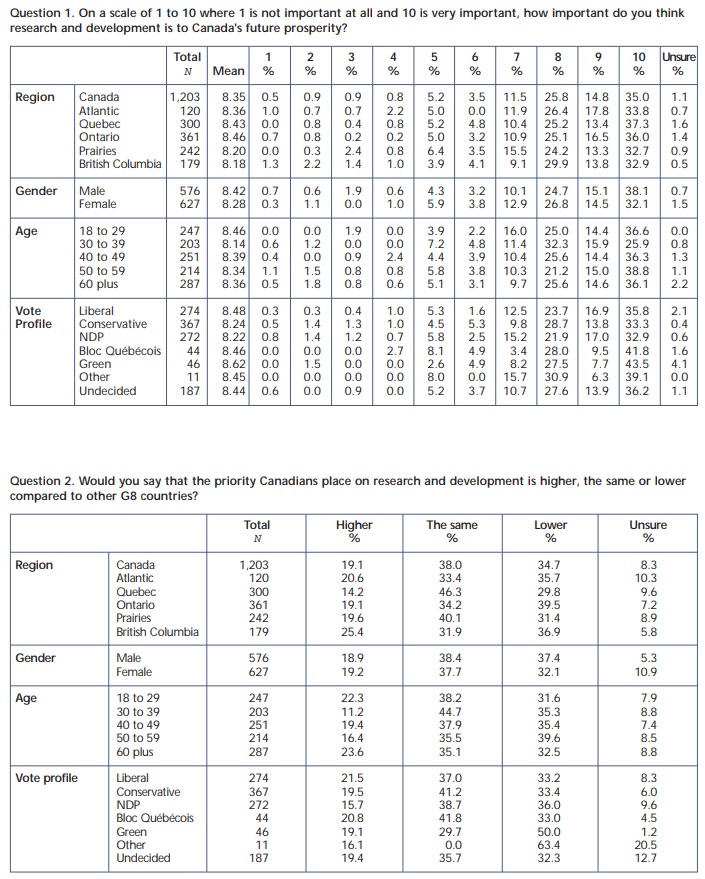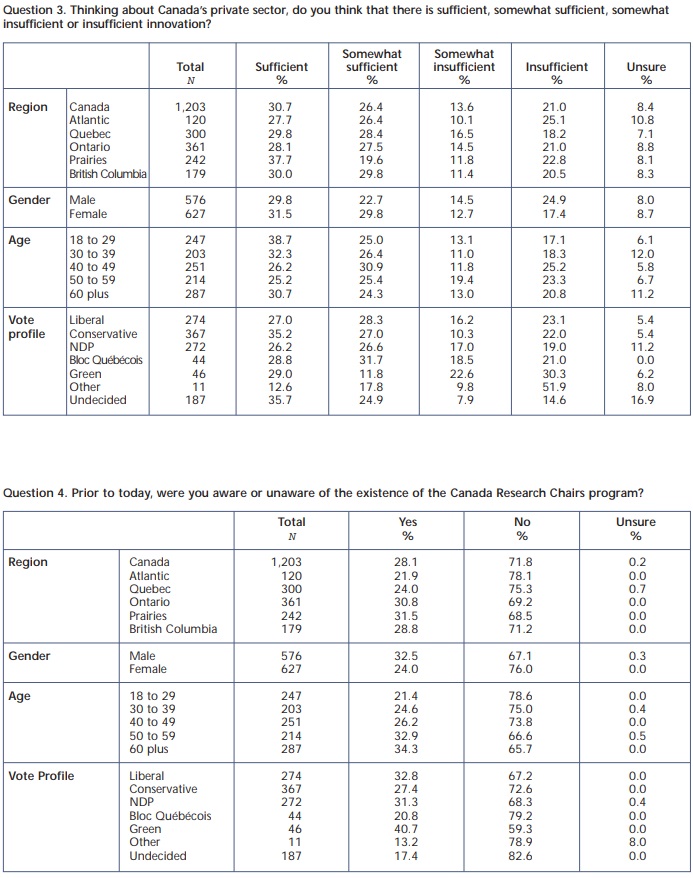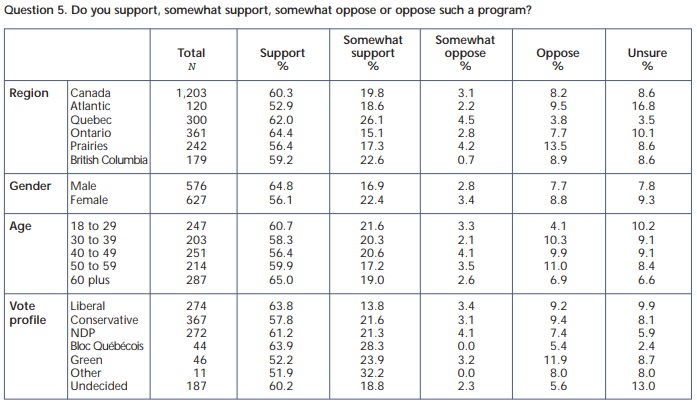
On a scale of 1 to 10, from not at all important to very important, nearly 50 percent of respondents rated R&D as 9 or higher while 25.8 percent rated it 8 (question 1).
The results are from a random telephone survey of 1,203 Canadians, from July 25 to August 3, 2011. The margin of error is plus or minus 2.8 percentage points, 19 times out of 20.
As you can see from question 1, one out of two Canadians saying R&D is “very important” for our future prosperity, cuts across all party lines, and all regions of the country.
It is an issue on which there is a national consensus already in place. In those terms, it is somewhat surprising that no political party, federal or provincial, has tapped into this widespread support for an R&D agenda as the launch pad for Canada’s prosperity in the global economy of the 21st century.
At the other end of the scale of 1 to 10, only 0.5 percent of Canadians said R&D was “not at all important” to Canada’s future prosperity. Even allowing for the margin of error, this number is significant only for its insignificance.
Which is not to say that Canadians are totally tuned in to the country’s R&D initiatives. When we asked respondents if they were “aware or unaware of the existence of the Canada Research Chairs program,” 71.8 percent said they were unaware, while 28.1 percent said they were aware (question 4).
This is actually a much better number that it appears to be at first glance. Nearly three Canadians in ten are aware of a program that is limited to universities across the country, and nowhere near being in the daily news mix or part of the economic concerns of their lives. If the other seven Canadians in ten are unaware, it’s a case of the glass being two-thirds empty but one-third full.
And it is much more than one-third full when we asked Canadians if they supported public funding for the Canada Research chairs Fully four Canadians in five said they supported or somewhat supported “such a program” (question 5). No less than 60.3 percent of Canadians said they supported such programs, while another 19.8 percent said they “somewhat” supported them.
Bottom line: eight out of ten Canadians support the Canada Research Chairs and other university-funded R&D programs of excellence. That’s a big number.
And when we asked whether the priority Canadians place on research and development “is higher, the same or lower compared to other G8 countries,” the response was in line with Canada’s record in R&D, as detailed in other articles in our Innovation Nation thematic.
Only one Canadian in five (19.1 percent) thought Canada placed a higher priority on R&D than did our G8 partners, while more than one in three (38 percent) thought our commitments were about “the same,” and another third (34.7 percent) thought our commitment was lower (question 2).
Looking at Canada’s private sector (question 3), a clear majority of Canadians thought there was “sufficient innovation” (30.7 percent) or “somewhat sufficient innovation” (26.4 percent). Only 21 percent thought the private sector’s commitment was “insufficient,” while 13.6 percent thought it was “somewhat insufficient.”
In essence, only one Canadian in three thinks the private sector’s commitment to R&D is insufficient, which flies in the face of other empirical data in this issue of Policy Options.
But then, that’s what the public opinion debate is about — educating public opinion.

Photo: Shutterstock











